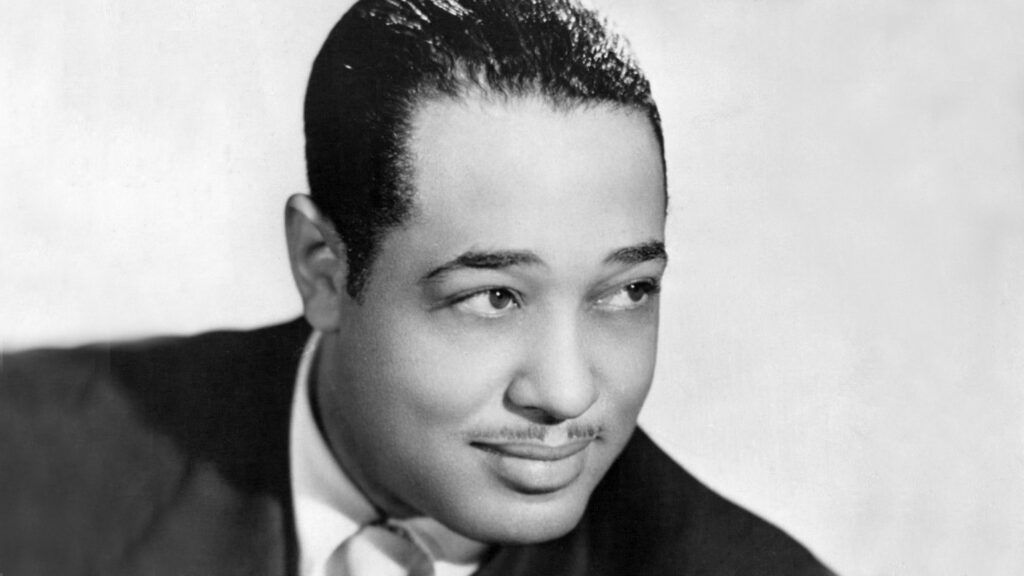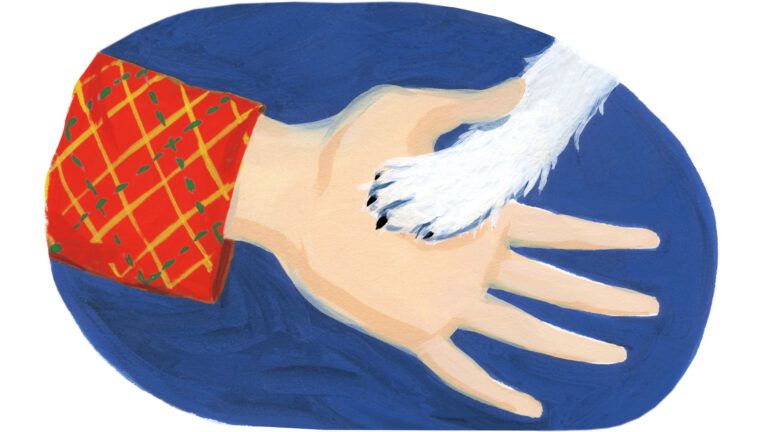When my mother died in 1935, I lost all ambition. I did nothing but brood. And when my father died a couple of years later, the bottom just dropped out. The grief was so great because I kept remembering everything my parents had left me. There was the memory of mother playing the Rosary on the piano when I was four. It was so beautiful I burst out crying.
Afterward she had me take some piano lessens on a new upright. Later I worked and pounded the piano keys until I was all music.
My father was a caterer and sometimes worked at the White House. He later became a blueprint technician for the Navy Department. My mother, my sister, myself, we never wanted for anything. He was a good provider. He was also a man of rectitude and faith.
FOR MORE INSPIRING STORIES, SUBSCRIBE TO GUIDEPOSTS!
My parents loved us, fed us, cleaned us, took us to church. Two churches. Every Sunday we first went to my father’s church, Methodist. Then my mother took us to her church, Baptist. Their respect for each other was a lesson itself. You don’t forget that kind of teaching.
They left me such a heritage of belief that after they were gone it was natural I should turn to the Bible for help, again. I read it through four times. That took over two years.
What did I get out of it? I thought that I knew something about life and living, about a good sound and grief and joy. But after studying the Scriptures, I found a new awareness of how to meet my problems, how to deal with my fellowman, and how to bring God further into my work.
There’s really nothing new under the sun. One generation passes away and another generation comes, but the earth abides forever. Ecclesiastes 1:4. So there’s nothing to get uptight about. If you know that, you don’t have to jump at every trouble. I wrote a piece, There Ain’t But the One, which said it all. So leave it to God.
One sure way I know to meet my problems is prayer. I pray regularly, when I arise, when I retire. I pray my thanks for whatever He gives me: a thought, a bar of music, food. I believe I am helped by prayer. It makes me aware of my total dependence on Him.
We all belong to Him in the first place. I figure that when we’re born we are only given a lease, that’s all. We’re accountable to Him at the end of the lease time. We’re not supposed to arrive at the end all scarred up by anger and hurt and self-pity. My grief left when it came to me that past a certain point, it’s a sin to grieve.
READ MORE: ETHEL WATERS ON SHARING GOD’S LOVE
The light that shows us how to deal with our neighbors and ourselves and God is easy to find: the Ten Commandments. Beautiful poetry, but they’re a whole way of life, too. There’s a natural inclination to break them, but we are shown the way back if we allow ourselves to be.
One of the great things the Bible gave me was to try and look inside a man instead of at the cut of his clothes. It makes you aware of what you lack. My manager has always said that my band has no boss. He’s right. I won’t argue with anybody, in the band or out of it.
I accept my fellowmen. I love them, or try to. That gives me an inner peace of my own. Arguing with anyone brings me to the point of anger and then to judging others. I can’t and won’t do that. That’s pitting my puny strength against the great Power that runs the universe.
My feeling is that God gives each of us a role to play in life. Mine is music. The first piece I ever wrote was Soda Fountain Rag. I was 15 and jerking soda in the Poodle Dog Care in Washington, D.C., my home town. Since then there have been many thousands of pieces, many of them called sacred music.
Where do they come from? God fills your mind and heart with them. All you have to do is believe and wait until they come and use them, whether it’s laying brick a new way or writing a song. The ideas come to me anytime, anyplace. So I accept the blessings and write them.
I write on trains, planes, ships, in cabs, buses—at night, in the morning, in the din and fury of the music world and the frenzy of a thousand one-night stands. Way back, years ago, Mahalia Jackson did one of my things, Come Sunday, and my version of the 23rd Psalm.
Later, we did an album together. It attracted the attention of various church people. Dean C. Julian Bartlett and the Rev. John Yaryan, canon of Grace Cathedral in San Francisco, asked me to present a concert of sacred music there.
When you get that kind of invitation, you’re not in show business. You think to yourself, It all has to be kind of right. You have to go out there and make a noise that tells the truth.
I had to stop and figure out my eligibility. I prayed. Every man prays in his own language, and I believe there is no language that God does not understand. Every time his children have thrown away fear in the pursuit of His word, miracles have happened.
When I went out to Grace Cathedral in 1965, there was a shout that it was all new. It wasn’t. The sacred music began a way back, in the Thirties, and earlier inside me.
At that first concert in San Francisco I told the 2500 people present, “In this program you hear a statement without words, but I think you should know that it is a statement with six tones symbolizing the six syllables in the first four words of the Bible, ‘In the beginning God…’ “
We opened and closed with Praise God. It was based on the 150th Psalm. In the program I tried new songs and new instrumental works, Supreme Being and Something About Believing and Almighty God. The trumpet preached a solo. A fire-and-brimstone sermonette came from the percussion section. When we reached the closing, Praise God, the audience was on its feet and stayed there through a whole a capella rendition of The Lord’s Prayer.
The response to that first sacred concert was completely unexpected. One news story began: “Duke Ellington talked to the Lord in Grace Cathedral last night.” All of us, every listener, every member of the band and chorus were talking to the Lord that night.
Since then we have done sacred concerts in more than 50 houses of worship in America and Europe. When the church is too small we go into a hall. One church found the 200 voices in the chorus too much, so the church rented a ball park.
The chorus need be only 20 voices. In a church the band and chorus are arranged in the sanctuary. The bishop, minister, priest or rabbi usually address the congregation before we begin.
The sacred concerts do not take the place of worship in the ordinary manner. But the music I write for them is and always was an act of worship. From the very beginning it was a response to a growing sense of obligation to myself in self-defense through the Almighty.
It continues to be an expression of God in my life. I am only saying in music what I have been saying on my knees for a long time.
For more inspiring stories, subscribe to Guideposts magazine.




